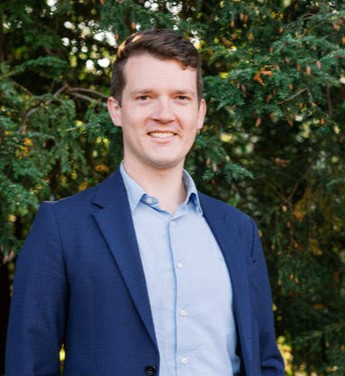Alumni Spotlight Series: Jonathan Dörnhofer 2020
The following interview is part of the Council on African Studies’ Alumni Spotlight series featuring graduates from both the Master’s and Bachelor’s Degrees in African Studies. Jonathan Dörnhofer graduated with an MA in African Studies in 2020. Jonathan is an Associate at McLarty Associates.
Could you tell us a little about yourself?
I am a passionate observer of Africa with a background in political economy and development policy. I grew up in Austin, Texas, and attended Yale from 2018-2020, immediately after completing my undergraduate degree at Georgetown in 2018.
How was your time at Yale? Can you share a few memories that you think might encapsulate your experience?
My time at Yale was very rewarding. What stands out to me the most in reflecting on my experience is the wealth of resources available to students beyond the classroom. To wit, I particularly remember my time studying Afrikaans one-on-one with a tutor through the Directed Independent Language Study (DILS) program, serving as a teacher in Yale Young African Scholars (YYAS), and spending long days writing my thesis in (what I believe to be) Yale’s best-kept secret, the CSSSI Library.
How did you end up at Yale focusing on African Studies?
I minored in African Studies as an undergraduate, and I wanted to maintain that focus. I was a bit skeptical of an area studies master’s degree, however, as I was worried about being pigeonholed. But Yale’s MA in African Studies offered so much flexibility, allowing me to essentially curate my own courseload from the entire catalogue of classes offered at the many schools and centers around campus. When comparing this degree to programs at other schools that prescribed a rigid curriculum each semester, the choice became easy.
How did your time at Yale and the AFST degree influence your life professionally and or personally?
Yale and the AFST degree had a great impact on my professional life. I had previously focused strictly on political science, but I broadened my focus to economics and commerce at Yale. This experience led directly to my current job in a trade advisory.
Can you tell us about your career after Yale and where you are now?
After graduating from Yale, I first worked in democracy and governance programming at IRI, one of the National Endowment for Democracy’s (NED) core institutes. I supported civil society programs in Kenya and Somaliland and was very fortunate to also serve as an election observer in both countries. I then moved to the private sector, joining McLarty Associates two years ago. There, we advise US and international firms seeking to do business in Africa. I provide these clients with political and economic analysis of key markets.
What advice would you give either to a current graduate student in AFST or an undergraduate student who is considering focusing on Africa as an undergrad or for graduate study?
Africa has long been a largely ignored continent, making it a daunting decision for any student contemplating a focus on Africa; there is seemingly no guarantee that there will be any jobs covering this region. I have found that this is not the case, however. Beyond academia and the government (which have long paid attention to the Continent), there are countless companies and organizations that now deal closely with Africa. But most people holding these Africa-facing positions have no educational experience in or with Africa whatsoever. As such, pursuing a degree (regardless if graduate or undergraduate, or even just a minor or certificate) expressly focusing on Africa immediately makes a student an appealing candidate for these roles. I would therefore strongly encourage students to consider formally focusing on Africa in their studies. It is a continent playing a rapidly increasing role in the world, and as governments, organizations, and companies realize this fact, the demand for skilled Africanists will only increase.
